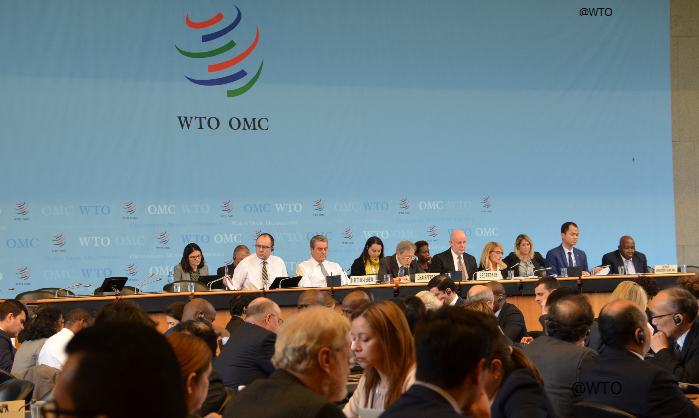
As one of the most valuable agri-food exporters, we have always underlined the essential role of the WTO in developing and enforcing the international trade rule book. Like everyone, we are witnessing the difficulty facing the WTO and we fully support the ambition of the European Commission together with other countries in the world to proceed with structural reform to modernise the WTO.
We welcome the proposals made this week by the European Commission to reform the functioning of the appellate body. The dispute mechanism system provides the businesses with a reliable and foreseeable system of interpretation of WTO rules. Take for example some of the rulings regarding our sector in Japan, Korea, Chile and Philippines cases; they have all provided the necessary guidance on how to adopt tax and other product regulations in a non-discriminatory way. The interpretation of “like” and of “directly competitive or substitutable products” showed how the Dispute Settlement Body interpreted the non-discrimination principle contained in GATT Article III and this helped our sector to increase its export performance.
We have made proposals to improve the regular work and transparency of the WTO. There is a variety of issues that can be addressed through the WTO’s regular committees including discriminatory domestic taxation, customs valuation, import quotas and bans, discriminatory licensing requirements; anticompetitive practices of state trading enterprises; and unnecessarily restrictive product standards, labelling and certification requirements.
In general, we would support proposals (incentives or sanctions) that aim at improving the quality of notifications, their timely submission and the quality of responses to concerns raised by other WTO members on these notifications.
The WTO is and should remain a central place for international rules making. Negotiations on market access and tariffs remain essential for our sector. At the same time we would very much welcome WTO establishing new rules to explicitly address illicit trade. It is a global issue and a concern for many sectors. Illicit trade in alcohol is widespread, representing significant percentages of alcohol consumption worldwide. It has been identified as one of the key challenges that our business faces in many parts of the world. Illicit trade in alcohol encompasses a wide variety of illegal activities, but their common denominator is that fraudulent actors operating in this area abuse the international trade law regime. We are not looking for a new agreement on illicit trade, but rather for bringing this topic under the scope of existing WTO agreements. The discussion on illegal fishery is an interesting precedent to consider.
We encourage WTO members to establish advisory committees with international trade experts to make sure the process of modernisation is inclusive and reflects the reality of trade.
From our end we are discussing these proposals with our sister organisations across the globe to build a stronger voice for the sector.
If you are keen to see the details of our proposals; please click here.